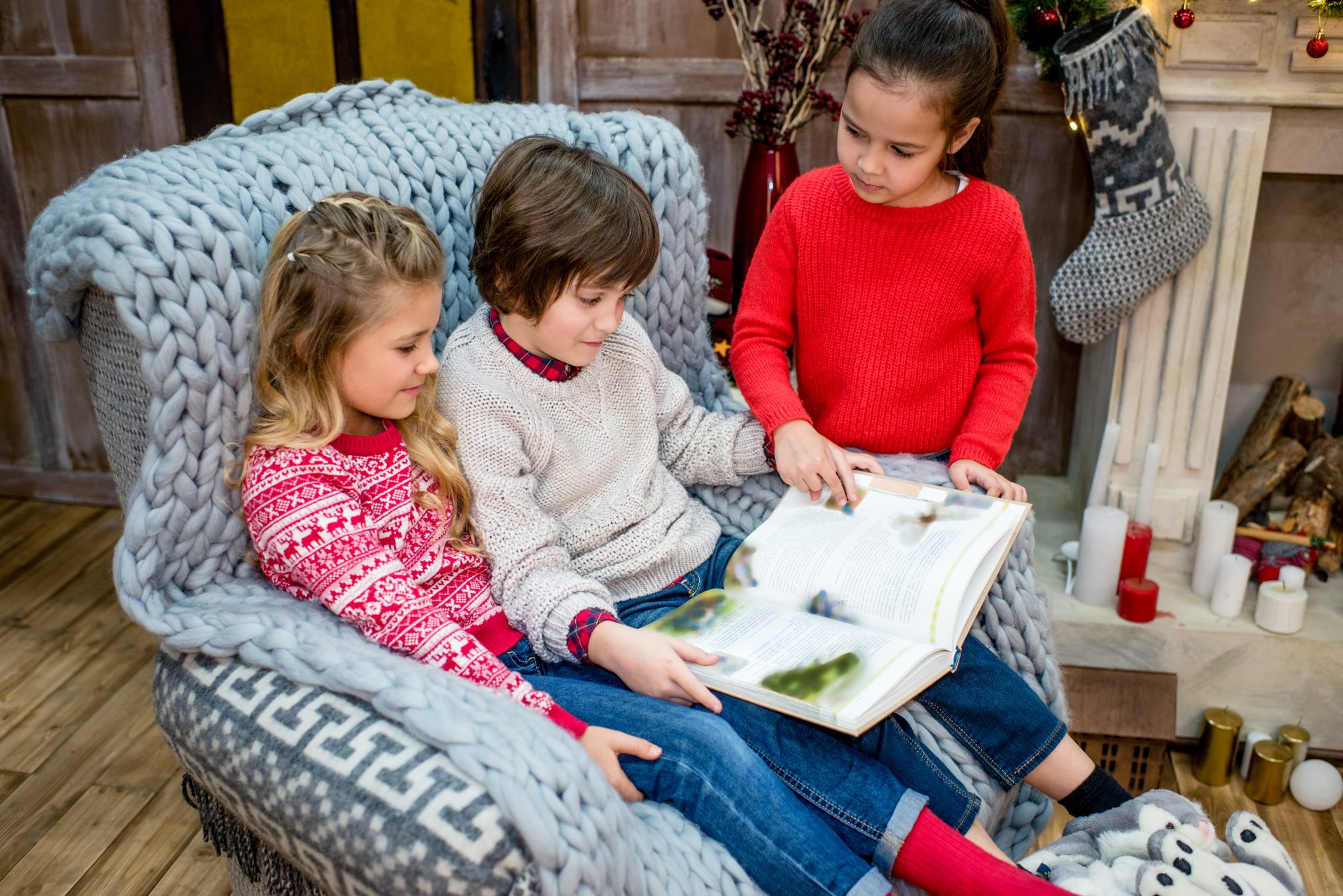As parents, we all want to give our children the best possible start in life. We invest in quality education, whether that’s through a dedicated preschool program, enriching daycare, or a combination of both. But what if we told you that some of the most profound and impactful learning happens beyond the classroom walls? The truth is, the home environment is a powerful, often underestimated, learning laboratory. At Discovery Time Learning Center, we believe in a holistic approach to early childhood development, one where the learning journey seamlessly extends from our nurturing classrooms right into your living room.
In today’s fast-paced world, it’s easy to feel overwhelmed by the sheer volume of information and advice on raising intelligent, well-rounded children. You might think “educational activities” sound like more work, more structured time, or even more screen time. But we’re here to share a secret: extending learning at home isn’t about rigid lesson plans or mimicking a classroom. It’s about harnessing your child’s natural curiosity, transforming everyday moments into exciting opportunities for discovery, and fostering a lifelong love of learning in a way that feels natural, joyful, and deeply connected to your family life.
This blog post will delve into the profound benefits of integrating learning into your home environment, offering practical, easy-to-implement ideas that complement your child’s experience at Discovery Time Learning Center. We’ll explore how simple shifts in perspective and routine can make a monumental difference in your child’s cognitive, social, emotional, and physical development, all while strengthening the incredible bond you share.
Why the Home is the Ultimate Learning Zone
Think about it: your child spends a significant amount of their waking hours at home. It’s where they feel safest, most comfortable, and most themselves. This comfort is a powerful catalyst for learning. Unlike a structured classroom setting, the home offers unparalleled flexibility and the ability to tailor experiences precisely to your child’s unique interests and learning style.
Here are just a few reasons why cultivating a learning-rich home environment is so beneficial:
- Personalized Learning: You are the expert on your child. You know what makes their eyes light up, what sparks their curiosity, and how they best absorb new information. This intimate knowledge allows you to create learning experiences that are truly engaging and effective for them. If they’re fascinated by dinosaurs, integrate counting into dinosaur play. If they love to build, introduce concepts of balance and structure with blocks.
- Reinforcement and Repetition: What children learn at Discovery Time Learning Center can be naturally reinforced at home. Hearing a new word in class and then seeing it labeled on an object at home, or practicing a counting song learned at daycare during bath time, solidifies those neural pathways. Repetition, especially in varied contexts, is key to mastery.
- Real-World Connections: The home provides endless opportunities to connect abstract concepts to tangible, real-world experiences. Cooking together teaches fractions and measurement. Sorting laundry introduces concepts of classification and color recognition. A walk in the neighborhood becomes a science lesson about plants and animals, or a math lesson about counting steps. This helps children understand the practical application of what they are learning.
- Fostering a Love of Learning: When learning is integrated into daily life and presented in a fun, natural way, children don’t see it as a chore. They see it as an exciting adventure. This cultivates an intrinsic motivation to learn, a genuine curiosity that will serve them well throughout their academic journey and beyond.
- Building Independence and Confidence: As children actively participate in learning at home, whether it’s choosing a book to read, helping to sort toys, or trying to solve a puzzle, they build a sense of agency. Successfully navigating these mini-challenges boosts their self-esteem and confidence in their abilities as learners.

Practical Strategies for Extending Learning at Home
Now, let’s get down to the fun part: how can you transform your home into a dynamic learning hub without adding stress to your already busy life? It’s simpler than you might think!
1. Embrace Play-Based Learning:
At Discovery Time Learning Center, we understand that play is a child’s most important work. It’s how they explore, experiment, and make sense of the world. Bring this philosophy home!
- Open-Ended Materials: Provide blocks, LEGOs, art supplies (crayons, paper, playdough), dress-up clothes, and natural materials (pinecones, leaves, sticks). These encourage imagination, creativity, and problem-solving without a prescribed outcome.
- Role-Playing and Pretend Play: Encourage your child to act out scenarios. They can be a doctor, a chef, a teacher, or an astronaut. This develops social skills, language, and empathy. Ask open-ended questions like, “What are you cooking?” or “What does the doctor do next?”
- Sensory Bins: Fill a bin with rice, pasta, sand, or water, and add small toys, scoops, and cups. This provides tactile exploration, helps with fine motor skills, and can be easily adapted for learning concepts (e.g., hiding letters in sand, counting objects).
2. Make Reading a Daily Adventure:
Reading together is one of the most powerful things you can do for your child’s development, laying the foundation for literacy and a love of stories.
- Create a Cozy Reading Nook: A few pillows, a soft blanket, and a small bookshelf can make reading time feel special and inviting.
- Read Aloud Daily: Even just 10-15 minutes a day makes a huge difference. Choose books that align with their interests, and don’t shy away from rereading favorites – repetition builds familiarity and comprehension.
- Talk About the Story: Ask questions as you read: “What do you think will happen next?” “How do you think that character feels?” “Can you point to the [object] on this page?” This promotes critical thinking and engagement.
- Lead by Example: Let your child see you reading for pleasure, whether it’s a book, a newspaper, or a magazine. Your actions speak volumes.
- Visit the Library: Make regular trips to your local library an exciting outing. Let your child choose books, fostering their independence and interest.
3. Integrate Numeracy into Everyday Tasks:
Math isn’t just about worksheets; it’s everywhere!
- Count Everything: Count steps, toys, pieces of fruit, fingers, and toes. Make it a game!
- Sort and Classify: Sort laundry by color, toys by shape or size, or utensils in the kitchen. This teaches logical thinking and categorization.
- Baking and Cooking: Involve your child in the kitchen. They can help measure ingredients, count spoons, and understand basic fractions (half a cup, full cup).
- Shape Hunt: Point out shapes in your home and environment (a circular clock, a square window, a triangular roof).
4. Turn Errands and Outings into Learning Opportunities:
Every trip outside the home is a chance to explore and learn.
- Grocery Store Adventures: Ask your child to help you find specific items, identify colors of produce, or count how many apples you need. Talk about where food comes from.
- Nature Walks: Point out different types of trees, leaves, flowers, or animals. Listen for sounds, discuss textures. “I spy” is a fantastic game for observation and vocabulary.
- Car Rides: Play “I Spy,” sing alphabet songs, or talk about what you see outside. Discuss street signs and the purpose of different buildings.
5. Foster Language and Communication:
The ability to express oneself clearly is a cornerstone of learning.
- Engage in Rich Conversations: Ask open-ended questions that go beyond a simple “yes” or “no.” Encourage them to elaborate on their thoughts and feelings.
- Introduce New Vocabulary: Use descriptive words naturally throughout your day. For example, instead of “That’s a nice flower,” try “Look at this vibrant, fragrant rose!”
- Tell Stories: Encourage your child to tell their own stories, whether real or imagined. Write them down or draw pictures together. This boosts creativity and narrative skills.
- Sing Songs and Recite Rhymes: Nursery rhymes and songs are excellent for developing phonological awareness (the sounds of language), rhythm, and memory.
6. Develop Social-Emotional Skills:
Learning isn’t just academic; it’s also about understanding emotions and interacting with others.
- Talk About Feelings: Help your child identify and express their emotions. “It looks like you’re feeling frustrated right now. What can we do to help?”
- Practice Empathy: Discuss how others might feel in different situations, whether it’s a character in a book or a friend at the park.
- Problem-Solve Together: When a challenge arises (e.g., a toy breaks, a disagreement with a sibling), guide your child through finding solutions. “What could we try to fix this?”
- Encourage Independence: Allow your child to make age-appropriate choices and take on small responsibilities, such as cleaning up their toys or choosing their outfit.

Partnering with Discovery Time Learning Center
At Discovery Time Learning Center, we are dedicated to providing a rich, stimulating environment where your child can thrive. Our curriculum is designed to foster curiosity, encourage exploration, and build foundational skills in a nurturing and engaging way. When you enroll your child with us, you’re not just choosing a daycare; you’re choosing a partner in your child’s educational journey.
We actively encourage communication between our educators and families. Ask us about the themes we’re exploring in class, the songs your child is learning, or specific skills they’re developing. This information can inspire your at-home activities, creating a powerful synergy between their experiences at the center and at home. Our goal is to create a seamless learning experience that supports your child’s development every step of the way.
Conclusion: Cultivating Lifelong Learners
Extending learning beyond the classroom isn’t about adding pressure; it’s about enriching your family life and making every moment count. By embracing play, prioritizing reading, integrating learning into everyday activities, fostering language, and nurturing social-emotional growth, you are providing your child with invaluable tools for lifelong success. You are teaching them that learning is an exciting, continuous adventure, not something confined to a specific time or place.
At Discovery Time Learning Center, we are proud to be a part of your child’s early learning journey, laying the groundwork for a future filled with discovery and growth. We offer comprehensive full-time, flexible part-time, and convenient drop-in daycare options designed to meet the diverse needs of families in Alexandria, VA.
Ready to see how Discovery Time Learning Center can partner with you to ignite your child’s potential?Contact us today to schedule a tour and learn more about our programs in Alexandria, VA! We look forward to welcoming your family.



